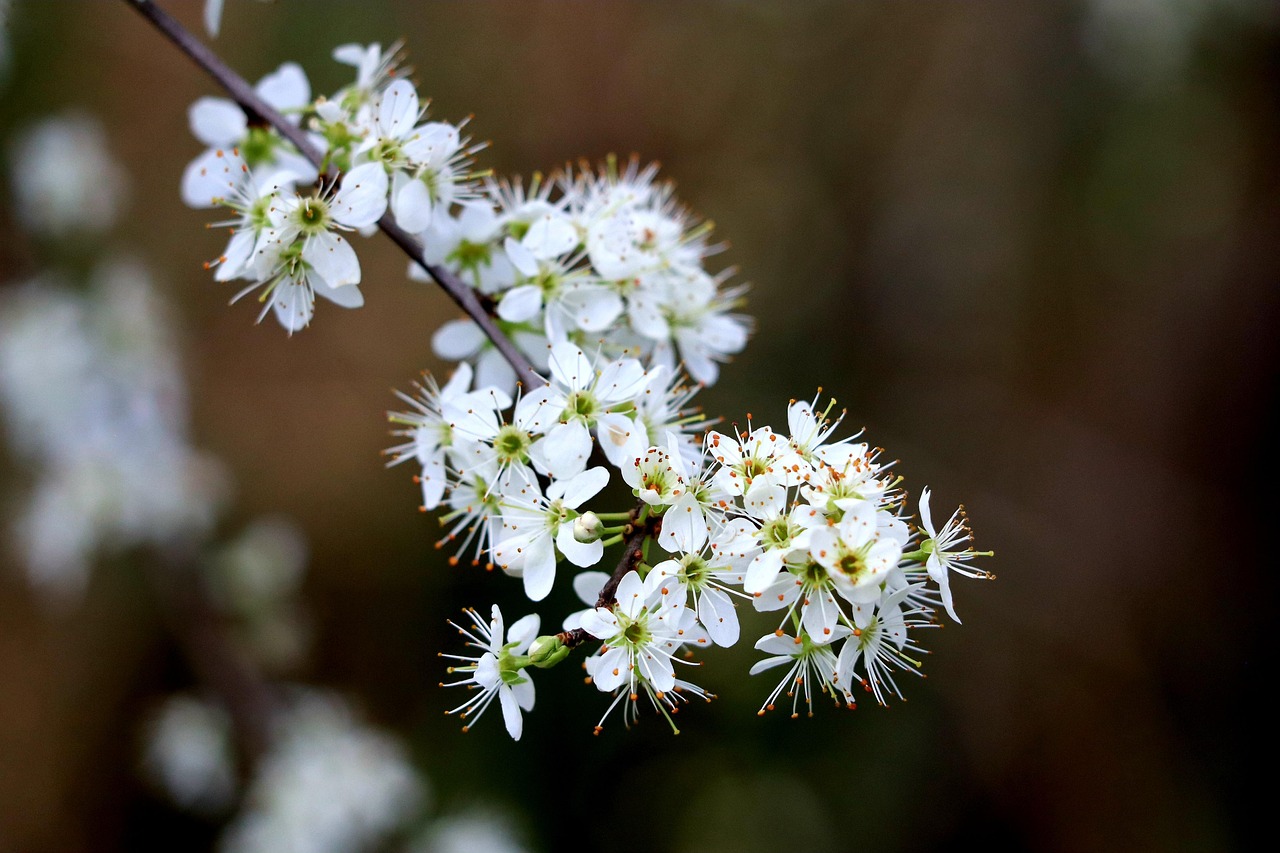Naturopathy in the upswing: Latest research for your health!
Discover the latest trends in phytotherapy, innovative approaches in homeopathy and the integration of naturopathy into conventional medicine. Find out about current research and its importance for patient care.

Naturopathy in the upswing: Latest research for your health!
Naturopathy is currently experiencing a renaissance, supported by both traditional knowledge and modern scientific approaches. In a world that is increasingly looking for holistic and sustainable solutions for health and well-being, research into natural healing methods is becoming increasingly important. New studies not only shed light on the effectiveness of tried and tested practices, but also uncover previously unknown potential of herbal active ingredients and alternative therapies. The focus is on the connection between people and nature: How can we use the earth's resources to promote healing without exploiting them? This article takes a look at the most exciting developments in naturopathy, showing how innovative research and centuries-old wisdom can work hand in hand to shape the medicine of tomorrow.
Current trends in phytotherapy

Imagine you are walking through a dense forest, surrounded by herbs and plants, whose secrets have been kept in healing for centuries. Today, in the age of modern science, these natural treasures are examined with a new look in order to decipher their effectiveness in naturopathy. Plant remedies, from St. John's wort to exotic plants such as Moringa Oleifera, are the focus of current research, which uncover both impressive potential and unexpected risks. The question of how these ancient means can find their place in a high -tech medical landscape is revealing scientists worldwide.
A central aspect of modern naturopathy is the return to nutrition as the cornerstone of health. Ludwig Feuerbach already aptly recognized: “Man is what he eats.” Food not only influences our well-being, but also plays a crucial role in recovery from illness. In Traditional European Naturopathy (TEN), foods are classified according to their effect - whether warming or cooling - and their taste, such as bitter or sweet. This classification allows nutritional plans to be individually tailored to a person's needs and circumstances. Various forms of fasting are also becoming more important, including Buchinger fasting, intermittent fasting or alkaline fasting, which are intended to bring the body back into balance. In addition to pure food intake, dietetics also includes exercise, life rhythms and environmental and social conditions, all of which are incorporated into a holistic treatment. You can find out more about these approaches on the website Jacquemai naturopathic practice, which describes such concepts in detail.
But while herbal remedies and nutritional concepts offer promising ways to promote health, they also pose challenges. Studies show that certain plant preparations such as St. John's wort, ginseng or ginkgo can cause dangerous interactions with conventional medication. Researchers at the University of Stellenbosch in South Africa have documented dozens of cases in a comprehensive investigation, published in the "British Journal of Clinical of Clinical Pharmacology", in which such means changed the effects of prescription medicines - be it due to weakening, reinforcement or even toxic side effects. The effects on anti-retroviral treatments in HIV patients, such as those can be triggered by Moringa Oleifera, are particularly alarming. In South Africa, where up to 80 percent of HIV-infected traditional medications use, this is a considerable risk. The study analyzed 49 case reports and two observation studies, which showed a total of 15 unwanted drug effects, with plant-based preparations playing a central role in almost 60 percent of cases. A detailed report offers more information on these interactions heilpraxisnet.de.
A deeper understanding of the mechanisms of action shows that certain ingredients in herbal remedies can influence drug metabolism in the body. St. John's wort, for example, may increase the side effects of antidepressants and reduce the effectiveness of medications such as warfarin or HIV therapeutics. Likewise, enzymes responsible for breaking down drugs can be disrupted by herbal products, jeopardizing the effectiveness of other treatments. It is estimated that as many as a third of acute kidney failure cases in Africa may be due to the use of traditional medicines. These findings illustrate how important it is to inform patients and doctors about possible risks and to always coordinate the use of such drugs.
The balance between benefits and risks remains one of the greatest challenges in research into herbal remedies. While Moringa oleifera is used in folk medicine to treat HIV, cancer or arthritis, scientific evidence for many of these uses is still lacking. Nevertheless, it shows that naturopathy is not only rooted in tradition, but also receives new impulses through modern research, which brings with it both opportunities and responsibility.
Innovative approaches in homeopathy

A tiny drop, diluted to incoming, and yet it should bring healing - the world of homeopathy fascinates and polarizes at the same time. Since its beginning over two centuries ago, this alternative healing method has stood in the field of tension between deep belief in its effect and sharp criticism from scientific circles. Current studies now throw fresh light on the application of homeopathic means in patient care and force us to question old prejudices. How can modern research methods help to prove or refute the effectiveness of this gentle form of therapy, and what role does it play in today's medicine?
The debate about homeopathy remains an ongoing topic in the medical community, but research continues. Innovative approaches such as the use of modern imaging techniques, such as functional magnetic resonance imaging (fMRI), make it possible to examine biochemical reactions in the body to homeopathic preparations. Phytochemical analyzes also contribute to a better understanding of the composition of plant extracts in these products. Systematic meta-analyses that combine existing clinical studies provide further insights. For example, a 2020 study that evaluated 126 randomized controlled trials found significant benefits of homeopathic treatments for certain chronic conditions. Nevertheless, many of these studies had methodological weaknesses, as an earlier review by Shang et al. from 2005, which equated homeopathic remedies with placebos - a result that is vehemently disputed by supporters.
In addition to purely technical methods, interdisciplinary approaches are becoming increasingly important. Collaborating with neuroscientists or taking psychological factors into account when homeopathic remedies work opens up new perspectives. Patient experiences and subjective evaluations play a role that should not be underestimated, as they often report noticeable improvement, even if objective evidence is lacking. The German Society for Classical Homeopathy (DGKH) therefore calls for high-quality studies to create the basis for evidence-based practice. Such efforts are also supported by organizations such as the Scientific Society for Homeopathy (WissHom), which has been promoting homeopathic research and establishing it in academic discourse since it was founded in Köthen (Anhalt) in 2010. You can find up-to-date information about these efforts on the website Whisper.
Another focus is on integrating homeopathic approaches into modern medicine. While it is increasingly being considered as a complementary therapy, the question of convincing evidence of effectiveness and safety remains central. Regulatory challenges, such as those regarding the quality standards of homeopathic products, also need to be addressed. Closer cooperation between homeopaths and conventional physicians could help to gain new insights and develop multimodal therapeutic approaches. This provides detailed insights into these developments Institute of Health, the innovative research methods and their importance for homeopathy.
The political dimension should also not be overlooked. In Germany, Health Minister Karl Lauterbach's announcement that health insurance companies would prohibit reimbursement for homeopathic treatments caused heated discussions. Initiatives such as the Alliance for Integrative Medicine or the citizens’ campaign “because it helps!” call for support of homeopathy and anthroposophic medicine in order to secure their place in health care. These controversies highlight the urgent need for in-depth research to decipher the mechanisms of homeopathic effects and clarify their role in patient care.
The future of homeopathy depends largely on whether it is possible to reconcile scientific standards with the individual experiences of patients. New studies and interdisciplinary projects could bring a decisive breakthrough and show how this gentle healing method can find its place in a modern healthcare system.
Integration of naturopathy into conventional medicine

Building bridges where there were once gaps – this is how one could describe the change in the relationship between naturopaths and conventional doctors. For a long time these two worlds were skeptical, if not hostile, towards each other, but today a remarkable change is taking place. The growing acceptance of naturopathic approaches in conventional medicine and the increasing willingness to work together are opening doors to integrative medicine that combines the best of both areas. What is driving this change and how does cooperation work in practice when traditional healing methods meet scientifically based methods?
Historically, naturopathy is rooted in a deep understanding of the body's self-healing powers, inspired by Hippocratic principles that view nature as the central healing force. Procedures such as hydrotherapy, phytotherapy or the use of heat and cold aim to stimulate natural reactions in the body, often without the use of synthetic drugs. Since its beginnings in the 19th century, when pioneers like Vinzenz Prießnitz propagated hydrotherapy, naturopathy has continually developed. Today, around 14,000 doctors in Germany are organized into specialist societies for naturopathy, and the additional designation “naturopathy” can be acquired after specialist training. This further training covers areas such as nutritional medicine, climate therapy and more, as detailed on Wikipedia is described.
Parallel to this is conventional medicine with its emphasis on scientifically recognized methods that are taught at medical universities. While critics of conventional medicine often criticize a certain rigidity in traditional thought structures, supporters value the comprehensibility and statistical relevance of their results. However, it is precisely in borderline areas such as psychosomatic disorders or incurable illnesses that conventional medicine reaches its limits, which creates space for alternative approaches. For many patients in Germany, naturopathic methods are a valuable addition, even if their effects are not always scientifically proven. This tension between evidence-based practice and individual healing experiences is explored in an insightful article Doccheck Flexikon illuminated in more detail.
The growing acceptance is particularly evident in the emergence of integrative medicine, which combines naturopathy and conventional approaches. University institutions for complementary medicine in Germany promote this exchange by promoting research and training at the interface of both disciplines. Doctors who train in natural medicine often bring a bridge between the worlds, for example by integrating phytotherapeutic remedies into their practice or encouraging patients to lead a more conscious lifestyle. This development is also supported by patients for whom the conflict between conventional and alternative medicine is often of secondary importance - the personal experience with a treatment remains crucial.
Still, there are challenges. Skeptics demand a clear separation between scientifically proven and unproven procedures, instead of simply distinguishing between conventional and alternative medicine. Criticism is also directed at economic interests that could play a role in alternative medicine, as well as potential risks if patients rely on unproven methods and neglect conventional therapies. On the other hand, proponents of naturopathy emphasize that many classic procedures have developed scientific foundations and are already used in conventional medicine - a sign that the boundaries between the disciplines are increasingly blurring.
Collaboration between naturopaths and conventional medicine could shape the future of healthcare by combining holistic approaches with precise diagnostics and therapy. Projects that combine both perspectives are becoming increasingly important, and the dialogue between the camps is becoming increasingly open. It will be exciting to see how this partnership develops and what new avenues it opens up for patient care.
Sources
- https://naturheilpraxis-jacquemai.ch/behandlung/
- https://www.heilpraxisnet.de/naturheilpraxis/pflanzliche-heilmittel-koennen-in-kombination-mit-medikamenten-toxisch-wirken-20180124398485
- https://institut-der-gesundheit.com/gesundheit-ernaehrung/homoeopathie-jenseits-der-grundlagen-neue-ansaetze-und-forschungsergebnisse
- https://www.wisshom.de/
- https://de.m.wikipedia.org/wiki/Naturheilkunde
- https://flexikon.doccheck.com/de/Schulmedizin

 Suche
Suche
 Mein Konto
Mein Konto
